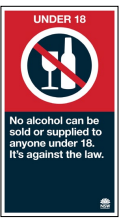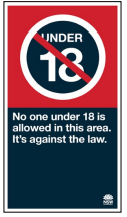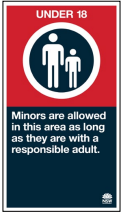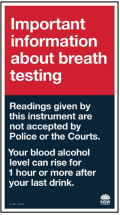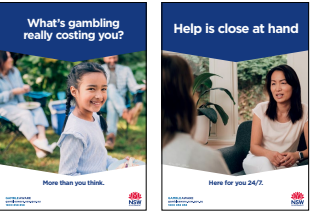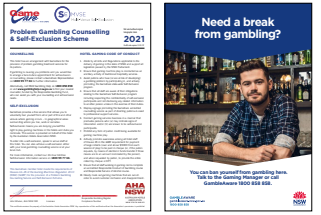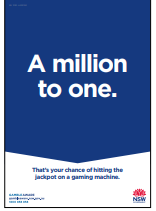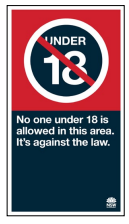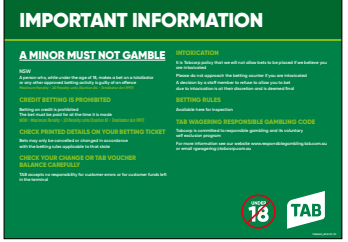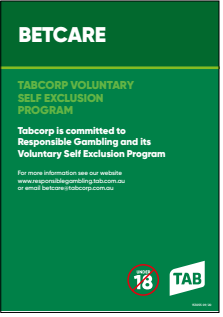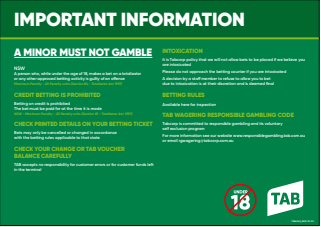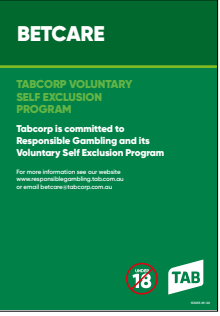Title Page
-
Site conducted
-
Conducted on
-
This checklist completed by
-
This checklist authorised by
-
Location
Before you complete this checklist
-
What this checklist is for
It is a valuable tool you can use to help your venue comply
with all your obligations under liquor laws. It covers important
legislative requirements such as signage, advertising and
responsible service of alcohol (RSA). We recommend that you
use the checklist regularly to help monitor your compliance.
If you check ‘No’ for any of the questions asked, you may be
in breach of your obligations. Our compliance officers use this
same checklist when they audit your licensed premises.
Why you need this checklist
The Secretary of the Department of Customer Service
(the Secretary), Liquor & Gaming NSW (L&GNSW) and the
Independent Liquor & Gaming Authority Board (the Authority)
can impose conditions on your licence. The Secretary can
order you to cease, vary or implement venue practices, order
a late hour entry declaration, ban undesirable products and
promotions, and require you to contribute and participate in a
local liquor accord.
Definition
Unless otherwise specified, the terms ‘approved’, ‘authorised’,
‘an approval’ and ‘an authorisation’ relate to approvals and
authorisations from or by the Authority or an L&GNSW delegate. -
How to purchase or download signage and display material specified in this checklist bspg.com.au/iveliquorandgamingnsw
Download the CE0003 ‘Signage and collateral order form’ at liquorandgaming.nsw.gov.au
Print-at-home signage will be available for download in the ‘Signs for your business’ section atliquorandgaming.nsw.gov.au
Need more information?
liquorandgaming.nsw.gov.au
Contact us online
1300 024 720
Your licensed premises
-
Liquor licence number
-
Licence name
-
This checklist completed by
-
This checklist authorised by
Liquor operations
-
• Unless otherwise specified, this liquor operations checklist operates under the Liquor Act 2007 and Liquor Regulation 2018.
• The first column of this checklist refers to sections in the Liquor Act 2007 and regulations in the Liquor Regulation 2018.
• If you check ‘No’ to any of the questions in this checklist, you may be in breach of your obligations and require further inquiry.
Part 1 Primary purpose and licence conditions
-
s. 15 Is the venue’s principal activity ‘the sale or supply of liquor by retail’ – in<br>other words, gaming machines do not detract from the venue’s character?
-
ss. 11, 52, 53, 54 Does the venue comply with each condition imposed on the liquor licence?
-
ss. 9, 12, 14 Is liquor sold and supplied strictly as per statutory and licence conditions?
-
ss. 9, 12, 14 Does the venue trade only within the hours it is permitted to as per the licence?
-
r. 44 Is a copy of the licence, licence-related authorisations and conditions available at all times to staff members and security?
-
s. 107 Is the licence available for immediate inspection by police or a Liquor & Gaming NSW inspector?
Part 2 Liquor operations, approved incident register and food provision
-
s. 56 r. 42
-
If the venue trades past midnight, does the licensee maintain an approved incident register?
-
Can all staff access the approved incident register?
-
Does the approved register show all incidents of violence and anti-social behaviour?
-
Are all incidents entered into the register true and correct?
-
Has the licensee responded to these incidents immediately and appropriately?
-
Is the approved incident register available for immediate inspection by police or a Liquor & Gaming NSW inspector?
-
Are the approved incident registers maintained for at least 3 years from when the incident occurred?
-
s. 17(2) Is the venue open to all classes of people without discrimination?
-
s. 17(4) Is food available at all times and consistent with responsible service of alcohol (RSA) principles when liquor is sold or supplied on the premises?
-
s. 17(5) Are there procedures and controls in place to prevent liquor being sold<br>outside the approved trading hours to in-house lodgers or employees?
Part 3 Minimising intoxication
-
s. 73(1)
-
Are there procedures and controls in place to prevent intoxication, indecent, violent or quarrelsome conduct in the venue? See the L&GNSW GL4003 ‘Intoxication guidelines’ at liquorandgaming.nsw.gov.au.
-
Are there procedures and controls in place to detect intoxicated patrons before they enter the venue?
-
Are there procedures and controls in place to prevent liquor being sold or supplied to an intoxicated person?
-
s. 73(4), (5) If an intoxicated person is found in the venue, can the licensee prove all relevant steps were taken to remove the patron from the venue?
-
r. 85 Is drinking water available free of charge to all patrons at all times when<br>liquor is sold or supplied?
Part 4 Primary purpose and licence conditions
-
r. 9 Has the venue paid the periodic licence fee due on 29 May of each assessment year?
Part 5 Liquor self-exclusion
-
s. 76
-
Does the venue operate a voluntary liquor self-exclusion scheme?
-
If requested, can staff properly inform patrons of the self-exclusion scheme?
-
s. 76(3) Has the licensee accepted all requests from patrons wishing to self-exclude from the venue?
Part 6 Licensee control
-
s. 7 Does the person apparently in control of the venue have an authorisation?
-
s. 8 Does the licensee ensure liquor is only sold in the authorised area of the venue?
-
s. 92(1)(a), 66 If the licensee or approved managers intends to be absent from the venue for more than 6 weeks, has an approval been provided authorising a temporary manager to manage the venue?
-
s. 92(1)(d) Does the licensee ensure that all instances of letting or sub-letting of any part of the licensed premises have an approval?
-
s. 66(1) If the manager is absent from the venue for more than 28 days, does the person in charge have an approval?
-
s. 93 If the venue was not trading for a continuous period of more than 6 weeks, was L&GNSW notified?
Part 7 Take-away sales
-
ss. 9, 14(4) Are there procedures and controls in place to prevent liquor being<br>sold or supplied after midnight Monday to Saturday (if authorised) and 11pm on Sundays?
Part 8 RSA training and competency card
-
rr. 63(3)- (5) Does the licensee hold a current recognised RSA certification?
-
rr. 63(1)-(2) Do all staff involved in the sale and supply of liquor hold a current<br>recognised RSA certification?
-
rr. 64(1)- (2)
-
Do all staff involved in security and crowd control hold a current<br>recognised RSA certification?
-
Has the licensee sighted each staff member’s current recognised RSA certification?
-
r. 63(1)Does everyone involved in liquor promotions on the hotel premises hold<br>a current recognised RSA certification?
-
r. 75 Are all staff able to produce their current physical or digital RSA competency card or interim certificate?
-
Has the licensee sighted each staff member’s physical or digital RSA competency card or interim certificate?
-
For any staff working under an interim RSA certificate, is the interim certificate still valid for work?
Part 9 Minors
-
s. 117(1),(2)
-
Are there procedures and controls in place to prevent anyone aged<br>under 18 being sold or supplied liquor?
-
Are there procedures and controls in place to prevent anyone under 18 from consuming or taking away liquor from the venue?
-
s. 117(8) Are there procedures and controls in place to prevent anyone from obtaining liquor for a minor unless they are the minor’s parent or guardian?
-
s. 122 If the venue has a minors function authorisation, are there procedures and controls in place to ensure staff know and observe all conditions?
-
• Giving local police 7 days written notice before each minors function?
-
• Ensuring liquor is not sold, supplied, disposed of or consumed in the area in which the function is held?
-
s. 124 Are procedures and controls in place to ensure that minors:<br>• Do not enter or remain in bar areas or restricted areas of the venue, including areas where gaming machines or tobacco machines are located? and • Stay with a responsible adult in the authorised areas?
-
s. 119 If the licensee allows a minor to sell, supply or serve liquor in the venue,<br>have they obtained an approval?
-
r. 84(3) Has the licensee been issued with a written notice under r. 50 by the<br>Secretary concerning the inclusion of the responsible consumption of alcohol<br>message in any liquor promotion or advertising relating to the venue?
-
r. 84(4) Has the licensee complied with the written notice?
Part 10 Liquor promotion and advertising
-
s. 99 and r. 84
-
Are all the liquor promotions conducted in accordance with the responsible service of alcohol (RSA)?
-
Are there procedures and controls in place to prevent intoxication or binge drinking during the liquor promotion?
-
Does the licensee ensure that all liquor advertisements consider the responsible service of alcohol principles?
-
Does the licensee ensure that all liquor promotions or advertisements that involve discounting include the responsible consumption of alcohol message?
Part 11 Undesirable liquor products
-
s. 100 and r. 86 Have all liquor products declared undesirable by the Minister been<br>banned from sale?
-
ss. 101,102,102A If the licensee has been issued with a written notice by the Secretary about the restriction or prohibition of the sale and supply of any undesirable liquor product, has that product been withdrawn from sale?
Part 12 Deterring crime
-
s. 74
-
Are there procedures and controls in place:<br>• That deter criminal activity in the venue, including the use/supply of illicit drugs and trafficking of stolen goods?
-
• To report actual or suspected criminal activity to police?
-
s. 74(3) Are all staff members aware that any criminal activity including stolen<br>goods or prohibited plants/drugs in the venue is prohibited?
-
s. 74(4) Are all staff aware of the venue’s procedures and controls that deter<br>criminal activity in the venue, including the use or supply of illicit drugs?
Part 13 Remote liquor sales
-
s. 114 and r. 51
-
If the venue sells or supplies liquor via phone, fax, mail order or online, is the liquor licence number displayed on the advertising material or published information?
-
Is this notice prominently displayed on any website?<br>Liquor Act 2007<br>It is against the law to sell or supply alcohol to, or to obtain alcohol on behalf of, a person under the age of 18 years.
-
Does the licensee require a prospective purchaser to provide date of birth (unless they have done so before) to ensure the purchaser is not a minor?
-
Does the licensee give a written instruction to the delivery person to ensure that minors do not accept or take possession of liquor purchased and delivered?
Part 14 Late hour entry
-
s. 87 Has the Secretary made a late hour entry declaration relating to the venue?
-
has the venue complied with that written late hour entry declaration?
Part 15 Noise disturbance
-
ss. 11, 79
-
Does the venue receive noise disturbance complaints from residents,police or the local council?
-
Has the licensee met with residents to resolve the disturbance issue?
-
was the disturbance issue resolved voluntarily?
-
If the venue has LA10 noise and disturbance conditions imposed on the licence, has the licensee complied with these conditions?
Part 16 Written direction
-
s. 75 If the Secretary has issued a written direction about any matter relating<br>to the venue, have the licensee and staff complied?
-
s. 136 If the Secretary has issued a written direction to contribute to the costs<br>of promoting or giving effect to a local liquor accord, has the licensee complied?
Part 17 Signage and resources
-
s. 95(1) and r. 49
-
Is there a sign at the front of the venue which can be read by a person from outside the premises?
-
Does the sign include the venue name shown on the liquor licence, type of licence and the licensee name shown on the licence?
-
s. 95(2) If the venue name has been altered, has the licensee obtained a written approval?
-
-
s. 127 and r. 50 Is Sign 1L (under 18s not to be served alcohol) prominently displayed at the bar or, if no bar, at or close to every public entrance?
-
-
s. 127 and r. 52 If the venue has restricted areas, is Sign 2L (minors not permitted in this area) prominently displayed at or close to the entrance to the restricted areas?
-
-
s. 97 and r. 54 If the venue has minors authorisation areas, is Sign 3L (under 18 authorisation area) prominently displayed at each entrance to a minors authorisation area?
-
-
s. 97 and r. 55 If the venue has a breath analysis instrument, is Sign 4L (breath testing), or a sign containing the same wording, prominently displayed nearby?
Part 18 Gaming machines
-
Gaming operations
• Unless otherwise specified, the first column of this gaming operations checklist refers to sections in the Gaming Machines Act 2001 and regulations in the Gaming Machines Regulation 2019.
• If you check ‘No’ to any of the questions in this checklist, you may be in breach of your obligations and require further inquiry. -
s. 56 Do all approved gaming machines kept or disposed of by the hotel have an authorisation?
-
s. 133(1) Are all approved gaming machines kept at the venue connected to the authorised Centralised Monitoring System?
-
s. 76 and r. 10
-
Do all gaming machines function in the manner for which they are designed and have an approval?
-
Are faulty gaming machines switched off as soon as practicable? Yes No
-
Is an ‘out of order’ notice displayed?
-
Are patrons not allowed to play until the gaming machine is repaired?
-
s. 77
-
Are there procedures and controls in place to prevent gaming machines being interfered with?
-
Does the licensee ensure all gaming machines have intact security seals?
-
s. 69(1) Does the licensee ensure all gaming machines kept on the venue premises have an approval, and have approved button labels, artwork, compliance plates and approved software
Part 19 Responsible conduct of gaming / harm minimisation
-
s. 39 Does the licensee ensure all gaming machines are not operated during the general 6-hour shutdown period?
-
ss. 40, 40A, 41 If the venue has an alternative gaming machine shutdown period<br>(compared to the general shutdown period) has the licensee been granted<br>approval?
-
s. 47(2)(d) Are there procedures and controls in place that prohibit gaming patrons<br>receiving free or discounted liquor, or free credits?
-
s. 45(2) Are there procedures and controls in place that prohibit gaming patrons<br>receiving any prize or free giveaway that is indecent or offensive?
Part 20 Problem gambling counselling and gaming self-exclusion
-
s. 46 and r. 44
-
Has the venue established a link with an approved gambling counselling service?
-
If requested, can venue staff properly inform patrons of the details of the counselling service?
-
s. 49 and r. 45 Does the venue operate a self-exclusion scheme?
-
Does the licensee ensure patrons have access to the self-exclusion scheme?
-
Does the licensee ensure patrons know how the self-exclusion scheme works?
-
r. 44(4 Does the licensee ensure the club displays a notice (either their own, or<br>Sign 5G ‘Need a break from gambling’) which publicises the gambling counselling service and self-exclusion scheme?
-
s. 46(3) Does the licensee ensure a written agreement with a gaming counselling service is available for immediate inspection by a Liquor & Gaming NSW inspector?
Part 21 RCG training and competency card
-
s. 47(2) (c)(ii) and r. 57 Does the licensee hold a current recognised RCG certification?
-
r. 57(4)
-
Do all staff members involved in the conduct of gambling hold a current recognised RCG certification?
-
Has the licensee sighted each staff member’s current recognised RCG certification?
-
r. 56 Has the licensee sighted each staff member’s physical or digital RCG competency card or interim certificate?
-
For any staff working under an interim RCG certificate, is the interim certificate still valid for work?
Part 22 ATM and EFTPOS terminals
-
s. 47(2)(g) and r. 24
-
Does the venue have ATM or EFTPOS terminals?
-
Is this problem gambling notice displayed so a person can clearly see the notice while using the ATM or cash-back terminal? <br><br>Help is close at hand GambleAware gambleaware.nsw.gov.au1800 858 858
-
r. 28 Is the ATM or EFTPOS terminal located outside the gaming machine area?
-
s. 47C Does the licensee ensure that the ATM or EFTPOS facilities prohibit cash withdrawals from a credit card account?
Part 23 Minors
-
LA s. 123
-
Are there procedures and controls in place to ensure anyone aged under 18 does not enter or remain in the gaming areas of the hotel?
-
Does the licensee ensure all minors are removed immediately from the hotel’s gaming area?
-
GMA ss. 50, 51 Are there procedures and controls in place to prevent minors from<br>playing the gaming machines?
Part 24 Cashing cheques
-
r. 25(1)(b), (c)
-
Does the licensee ensure that cheque cashing is limited to one personal cheque per person per day up to a maximum of $400?
-
r. 25(1)(a) Does the licensee ensure that the cheque is made out to the hotel<br>manager or hotel owner?
-
r. 25(1)(d) If the cheque has been dishonoured, are there procedures and controls<br>in place to prevent the same person from cashing another cheque?
-
r. 25(2) Does the licensee ensure that all cheques are banked within 2 working days?
Part 25 Cash advances
-
LA s. 17(1) Are there procedures and controls in place to prevent cash advances<br>being given to patrons?
-
LA ss. 17, 109(1) Are there procedures and controls in place to prevent false recording of cash advances for gambling as credit transactions?
-
LA s. 17 and 108 Are there procedures and controls in place to prevent staff from<br>extending/offering credit to patrons to gamble?
-
s. 75 Does the licensee ensure that the gaming machines do not provide cash<br>or credit other than as a scheduled prize?
Part 26 Gaming-related advertising and signage
-
s. 43(1) and c. 41 Does the licensee ensure all external gaming-related advertisements are prohibited?
-
s. 44(1) and c. 41 Does the licensee ensure that there is no external gaming-related<br>signage and that all internal gaming-related signage is positioned so it cannot be seen from outside the hotel?<br>Note: This includes gaming machine jackpot monitors.
-
s. 43(1) Does the licensee ensure there is no outdoor sign that advertises<br>gaming machines?
Part 27 Gaming machine location
-
r. 9(1)(a) Are all gaming machines located in the venue’s bar area as defined<br>in the Liquor Act 2007?
-
Are all gaming machines located in the restricted area of the hotel?
-
r. 9(1)(b) Does the licensee ensure that all gaming machines are only operated<br>when liquor is legally sold?
-
s. 68 If the venue operates more than 10 gaming machines, does the licensee<br>ensure that no more than 5 are located in the general bar area and the remainder are located in a gaming room that complies with the Gaming Machines Regulation 2019?
-
r. 8 If the venue operates a gaming room, does the licensee ensure it complies<br>with the regulations (e.g. floor-to-ceiling walls, patrons not required to pass through to enter or leave the venue, gaming machines are not visible from the street, monitored all machines at all times by electronic means or by the physical presence of venue staff, free entry, machines are suitably spaced, doorway or space to operating bar and toilets)?
-
r. 8(2)(i) If the gaming room can be accessed directly from a public street,<br>does the licensee ensure that each doorway in the gaming room that provides access to and from the rest of the hotel is clearly marked and evident to patrons in the gaming room?
-
s. 44A Does the licensee ensure that all gaming machines located in the venue<br>do not attract the attention of anyone outside the venue?
Part 28 Gaming prizes
-
r. 50 Does the licensee ensure that the identity of a patron who wins more<br>than $1,000 is kept confidential and not published unless requested by the winner?
-
r. 26 If the balance of a gaming machine prize is $5,000 or more:<br>Is the amount over $5,000 paid by crossed cheque, or electronic funds<br>transfer (EFT) if the person requests? <br>If requested, does the venue pay the full amount of the gaming prize paid by crossed cheque or EFT?
-
s. 75A(6) Does the venue pay all monetary gaming prizes within 48 hours of request by the prize winner?
-
s. 75A(7) If a prize is not awarded immediately, is the prize winner given a written<br>acknowledgement of the prize?
-
r. 13 Do all gaming machine prize schedules have an approval?
-
Are non-cash gaming prizes purchased directly from a retailer/ manufacturer?
-
has an approval been sought?
-
Are all prizes paid in full, including cents?
-
s. 47B and r. 27 Does the licensee ensure that all gaming machine prize winning cheques:
-
• Are clearly identified? cashing rules apply’?
-
• Contain a statement ‘Prize winning cheque – cashing rules apply’?
-
s. 47A Does the licensee ensure that all gaming machine prize winning cheques are not cashed at the venue?<br>Note: A person, other than a financial institution, must not accept the transfer of a prize winning cheque with 500 metres of the venue.
Part 29 Gaming machine tickets
-
r. 105(1) Is there a designated area (whether by sign or otherwise) where gaming<br>machine tickets may be redeemed?
-
c. 106 Is the hotelier or staff member, who holds a recognised competency<br>card with a current RCG endorsement, authorised to redeem gaming machine tickets?
-
r. 102 Do all gaming machine tickets include the dollar value of the accumulated credits and unique identification number?
-
r. 103 Do all gaming machines have a lock or other security measure before the<br>machine or equipment can issue a gaming machine ticket representing accumulated credits to a monetary value of more than $10,000?
-
r. 104 Does the venue’s gaming machine ticket system keep a record of all tickets issued, which includes the gaming machine identification number, unique ticket identification number, dollar value, ticket date and time of issue?
-
c. 104 Do all gaming machine tickets have the venue name and problem<br>gambling notice?
-
r. 107 If a gaming machine ticket is not redeemed on the day of issue or the<br>next day or has a value of $5,000 or more, does the venue record the name, address and signature of person claiming the prize, identification details, time and date of the redemption?
-
r. 108 Does the venue keep a monthly record of all redeemed gaming machine<br>tickets and all unclaimed gaming machine tickets?
-
r. 109 Does the venue display a list of unclaimed gaming machine tickets<br>with a value exceeding $10 for a period of at least 1 month immediately before the date on which the tickets are due to expire?<br> Note: A ticket expires 12 months from date of issue.
-
r. 109(3) If the unclaimed gaming machine ticket is not redeemed before it<br>expires, does the licensee ensure that within 3 months of expiration the monetary value of all unclaimed tickets are paid to the Secretary?
Part 30 Player reward scheme and promotional prizes
-
r. 93 If the hotel operates a player reward scheme, does the licensee give patrons an option of choosing whether or not to participate?
-
s. 45 Does the licensee ensure that all gaming machine promotional prizes,
including bonus reward points: -
• Are not valued at more than $1,000 and are not offered as cash?
-
• Are not exchanged for cash?
-
s. 45(4) and c. 42 Does the venue ensure that the player reward scheme participants<br>are aware that the player activity statement is available on request?
-
Does the venue player reward scheme promotional material inform participants that the player activity statement is available on request?
-
s. 45(2) Does the licensee ensure that all gaming promotional prizes are not<br>indecent or offensive?
Part 31 Player card / account
-
r. 92(1) Are all player cards restricted to persons over 18 years of age?
-
r. 92 Does the venue sight any documentary proof of the player card holder’s identity?
-
r. 92 Are there procedures and controls in place to record player cards that are lost, stolen or destroyed?
-
c. 92 Are there procedures and controls in place to ensure that all player cards<br>are not issued unless the applicant received information contained within the gambling warning and problem gambling notice?
-
r. 95 Is the amount stored in the player’s account or player card limited to a maximum of $5,000?
-
r. 94 Are procedures and controls in place to ensure that a player cannot operate more than one player’s account?
-
r. 94 Are procedures and controls in place to ensure that cash advances or any other form of credit are not extended to a player’s account?
-
cc. 94, 19 Are all players opening a new account provided with written information<br>regarding security of money, a PIN and a player information brochure as described in r.19?
-
r. 94 Is all cash in a player’s account kept in a separate account and not used<br>by the venue?
-
r. 97 Are all persons issued with a player card informed that the player activity statement is available on request?
Part 32 Gaming machine records
-
r. 143 Does the licensee ensure that all gaming-related business records are kept at the venue for at least 3 years, or another approved place?
Part 33 Technician records
-
s. 76B and c. 16 Does the licensee ensure that all works carried out by a licensed<br>technician on the gaming machines concerning the installation, servicing and repair of an area referred to in s. 77 of the Act, or the electronic meters have been reset, are recorded and the records are kept at the venue?<br>Note: The record must contain the date, technician’s name and licence number, and gaming machine name and serial number.
Part 34 Player activity statements
-
c. 42, cl. 22 Does the licensee ensure that all player activity statements contain the problem gambling notice?<br><br>Help is close at hand GambleAware gambleaware.nsw.gov.au 1800 858 858
-
r. 97(1)(b) Does the licensee ensure that all internal promotional material regarding<br>electronic payment gaming machines, that material includes advice that the player activity statement is available on request?
-
r. 101(2) If a player requested a monthly player activity statement, does the licensee ensure it is made available to that player?
-
r. 101(3) Does the player activity statement contain the following information: total turnover, total wins, net expenditure, and time card inserted?
-
r. 101(4) Does the licensee ensure that a record is kept of depositing, paying of credits and withdrawals for player activity statements and this record is provided to the player on request?
-
r. 98 Does the licensee keep a record or copy of all player activity statements issued to players?
-
r. 99 If a patron has a player account and wishes to set a limit on the amount of net expenditure, does the licensee ensure that they:<br>• Adhere to the player’s wishes?<br>• Informed the player they may limit the weekly expenditure at the time of establishing a player account?
-
Does the licensee ensure that any request for a limit on a player’s account is enacted within 24 hours?
Part 35 Progressive gaming machines and progressive gaming system
-
cc. 76, 77(a) and 77(b)
-
If the venue operates a progressive gaming machine or progressive system, does it have an approval?
-
Is the jackpot display visible from all gaming machines attached to the linked progressive jackpot system?
-
r. 77(c) Does the hotel ensure an authorised progressive gaming machine or authorised progressive system is not deliberately removed from play and in so doing deny players the opportunity to win existing progressive jackpots, unless removed under r. 82 or 84?
-
r. 78
-
Are all gaming machines clearly identified as being attached to the progressive system?
-
Do the house numbers on the gaming machine cabinets match those electronically recorded in the progressive system controller?
-
r. 79 Is the venue gaming machine jackpot prize monitor located in the bar area or gaming room?
-
c. 80(1) Does the licensee ensure that the venue’s progressive gaming machine or progressive gaming system is functioning properly?
-
r. 82(2) If the venue’s progressive gaming machine or progress gaming system<br>is faulty, does the licensee ensure it is removed from play immediately and an ‘out of order’ notice displayed indicating it is faulty?
-
r. 81 Does the licensee ensure that unauthorised person/s do not have access to the venue’s authorised progressive gaming machine or progressive system?
-
c. 82 (1)(a) Does the licensee have a written approval to dispose of any progressive machine?
-
c. 82 (1)(b) Does the licensee have a written approval to dispose of any progressive system?
-
c. 82 (1)(c) Does the licensee have a written approval to dispose of the accumulated<br>progressive jackpot amounts on the gaming machine / system?
-
r. 83 Does the venue dispose of all accumulated jackpot amounts, less start<br>up amounts in accordance with an approval and within 6 months of that approval?
-
r. 84 Are all unclaimed jackpot prizes older than 12 months paid to the Secretary within 3 months of that 12-month period lapsing?
-
r. 85 Are all particulars kept for manual linked progressive jackpot system prize payments (e.g. date, serial number, prize amount, name, address and signature of person who won the prize, name and signature of one witness)?
-
has the licensee obtained a formal guarantee from a financial institution or body that has an approval?
-
r. 90(3) Does the venue keep a written record of the following: special account,<br>any guarantee obtained or any arrangement entered under subclause (2) (a), (2)(b) or (2) (c)?
-
r. 90(4) Does the licensee ensure that all records referred to in subclause (3) are forwarded to L&GNSW within 21 days after the end of each instalment period?
Part 36 Progressive gaming system reporting
-
c. 86(2)(a) Does the licensee or approved manager read and record the monthly<br>electronic turnover meters of the progressive gaming system?
-
c. 86(2)(b) Each month, does the licensee read and record the amount shown on the progressive meters of the progressive gaming system?
-
r. 86(3) Does the licensee ensure the jackpot reconciliation for the progressive<br>gaming system is prepared monthly?
Part 37 Signage and resources – gaming machines
-
-
c. 23 Is Sign 1G (Gambling warning sign) and 6G (Gambling counselling sign) prominently displayed in each gaming area?
-
-
c. 44 Is a self exclusion sign such as the GameCare MSVE exclusion poster,<br>prominently displayed in each gaming area?<br>Note: A 5G (self-exclusion) sign is available on the L&G website.
-
-
c. 18 Is Sign 3G (chance of winning) prominently displayed in each gaming area?
-
-
LA s. 127 and LR r. 33 Is Sign 2L (minors not permitted in this area) prominently displayed at or close to each entrance to bar and gaming area?
-
-
c. 22 Is Sign 4G (Gambling counselling sticker) prominently displayed on each gaming machine?
-
c. 24 and 42(7) Is this problem gambling notice (produced by the venue) prominently displayed on the ATM, cash-back terminal, player activity statement?<br><br>Help is close at hand GambleAware gambleaware.nsw.gov.au 1800 858 858
-
r. 46 Is Sign 2G (self-exclusion contact cards) securely attached to each bank of gaming machines in a card holder so they can be clear seen when playing a gaming machine or approaching the bank of gaming machines?
-
rr. 19, 20 Is Brochure 1 (Info about the gaming machines) made available in each<br>gaming area at all times?
-
rr. 19, 21 Is Brochure 1 (Info about gaming machines - translated version) in the relvant community language supplied as soon as possible following a patron’s request?
-
Note: You may either purchase signs from L&GNSW, or print it out yourself. Please see the ‘Signs for your business’ section at liquorandgaming.nsw.gov.au for the correct signs to be displayed.
– A number of options showing different images are available for each sign with display of only one required.
These are available on the L&G website.
– The ‘GameCare MVSE’ sign can be obtained from AHA NSW.
Part 38 Conditions
-
Keno operations
• Unless otherwise specified, the first column of this Keno operations checklist refers to sections in the Public Lotteries Act 1996, regulations in the Public Lotteries Regulation 2007 and Keno rules.
• If you check ‘No’ to any of the questions in this checklist, you may be in breach of your obligations and require further inquiry. -
s. 10 Does the venue operate Keno?
-
s. 14
-
Does the licensee comply with the conditions imposed by the Minister? Yes No
-
Does the licensee comply with the conditions imposed by the legislation? Yes No
-
s. 22 Is the licensee aware of the Keno rules?
-
s. 24(1)(a)
-
Are venue staff aware of the Keno rules?
-
Are the Keno rules (extract) prominently displayed at each place where Keno entries are accepted?
-
s. 24(1)(b) Is a complete copy of the Keno rules available for inspection free of charge on request?
Part 39 Keno staf
-
s. 43 and rule 9(a)(b) Are procedures and controls in place that prevent staff accepting an entry on Keno without payment at the time the entry is made?
Part 40 Credit betting
-
s. 43 and rule 9(a)(b) Are procedures and controls in place that prevent staff accepting an entry on Keno without payment at the time the entry is made?
Part 41 Gambling inducement
-
r. 16 Are procedures and controls in place to ensure staff do not offer or supply any free or discounted liquor to participate in a Keno game?
Part 42 Prizes and prize winner
-
r. 15 If a Keno prize more than $5,000 or the lower limit specified by that venue (venue threshold) but less than $10,000 is won by a patron, has the licensee ensured that the balance, or the full amount (if requested by the patron), is paid by a crossed cheque or electronic funds transfer (EFT)?
-
s. 38 and r. 7 Does the licensee ensure that any Keno prize winner’s identity is kept<br>confidential and not published unless requested by the prize winner?
Part 43 Minors
-
s. 44 and rule 5A(c) Are procedures and controls in place to prevent anyone aged<br>under 18 from purchasing a Keno entry (in person, via mail or by electronic means)?
Part 44 Advertising
-
s. 39 and r. 14(2)
-
Are there procedures and controls in place to prohibit any Keno-related advertisements that:
-
• Encourage a breach of the law?
-
• Depict children?
-
• Suggest that winning will be a definite outcome of participating in a public lottery?
-
• Suggest that entering a public lottery will definitely improve a person’s financial prospect?
-
• Breach the Commercial Television Industry Code of Practice?
-
r. 14(3) Does the licensee ensure that all Keno-related advertisements have the problem gambling message?<br>Help is close at hand GambleAware gambleaware.nsw.gov.au 1800 858 858
-
s. 43B Does the licensee ensure that all Keno promotions are approved by the<br>Keno licensee or the person acting for the Keno licensee?
Part 45 Signage and resources
-
-
r. 13(2) Is Sign 6G (Gambling counselling sign) prominently displayed in each point of sale where Keno tickets are sold?
-
r. 13(4) Is Sign 6G an approved sign
-
-
r. 10 Is Brochure 2 (Info about lotto, lotteries or Keno) available and prominently<br>displayed at or near each Keno terminal?
-
-
r. 11 Is Brochure 2 (Info about lotto, lotteries or Keno - translated version) available following a patron’s request?
-
Note: You may either purchase signs from L&GNSW, or print it out yourself. Please see the ‘Signs for your business’ section at liquorandgaming.nsw.gov.au for the correct signs to be displayed.
Part 46 TAB outlets – conditions
-
Wagering operations
• Unless otherwise specified, the first column of this wagering operations checklist refers to the Totalizator Act 1997 (TA), Totalizator Regulation 2012 (TR) and the Unlawful Gambling Act 1998 (UGA).
• If you check ‘No’ to any of the questions in this checklist, you may be in breach of your obligations and require further inquiry. -
Does the venue operate a TAB?
-
TA s. 57
-
Is the licensee aware of the totalizator rules that apply to the TAB outlet?
-
Are staff aware of the totalizator rules that apply to TAB outlet?
-
TA s. 55(a) Does the venue prominently display a sign at each place bets are accepted stating where a copy of the rules can be viewed?
-
TA s.55(b) Is a complete copy of the totalizator rules available for inspection free<br>of charge by a person on request?
Part 47 Responsible conduct of betting – totalizators, totalizator betting and other betting activity
-
TA s. 117(1) Do all betting activities adopt the responsible practices in the conduct<br>of totalizators, totalizator betting and any other betting activities approved<br>under s. 13 of the Totalizator Act 1997?
-
TA s. 117A(2) Has the licensee complied with all the particulars required by the<br>regulations?
Part 48 Credit betting
-
A s. 81 Are there procedures and controls in place that prevent staff accepting<br>a bet on a totalizator without payment at the time the bet is made?
Part 49 Gambling inducement
-
TR r. 13 Are there procedures and controls in place to ensure all staff or agents do not offer or supply free or heavily discounted liquor to patrons that gamble?
Part 50 Betting tickets / entry
-
TR r. 8 Does the licensee ensure that all betting entries have a problem gambling message? <br>Help is close at hand GambleAware gambleaware.nsw.gov.au1800 858 858
-
TA s. 117A(2) (d) and TR r. 8 Does the licensee ensure that all betting tickets are printed with the problem gambling message?<br>Help is close at hand GambleAware gambleaware.nsw.gov.au 1800 858 858
Part 51 Advertising
-
TA s. 80
-
Does the licensee ensure that all totalizator-related advertisements do not contravene the regulations or rules?
-
Are there procedures and controls in place to prevent staff publishing or causing to publish any totalizator-related advertisements contrary to the regulations and rules?
-
TR r. 12(1)
-
Are there procedures and controls in place that prohibit any totalizatorrelated advertisements that:
-
• Encourage a breach of the law?
-
• Depict children gambling?
-
• Are false, misleading or deceptive?
-
• Suggest participation in gambling activities is likely to improve a person’s financial prospects?
-
• Promote the consumption of alcohol while engaging in gambling activities?
-
• Are not published in accordance with decency, dignity and good taste?
-
• Breach the Commercial Television Industry Code of Practice registered by the Australian Communications and Media Authority?
-
TR r. 12(h) <br>Are there procedures and controls in place that prohibit any totalizatorrelated advertisements that offer any inducement to participate, or to<br>participate frequently in any gambling activity (including an inducement<br>to open a betting account)?
-
TR r. 12(3) Does the licensee ensure all totalizator-related advertisements<br>in racebooks, newspapers, magazines, posters, website or other printed form must include the problem gambling message?<br><br>Help is close at hand GambleAware gambleaware.nsw.gov.au 1800 858 858
Part 52 Minors and EBT
-
TA s. 84(1) Are there procedures and controls in place to prevent a minor placing<br>a bet?
-
TA s. 84(2)
-
-
If the venue has Electronic Betting Terminals (EBTs), is the ‘TAB under 18’ notice prominently displayed on or close to the EBTs?
-
Does the licensee ensure all EBTs are monitored at all times, either by electronic means or staff?
-
UGA s. 16(1)(c) Are there procedures and controls in place to prevent an inducement<br>given to a minor to gamble for a fee or reward?
-
TAB Notice
-
-
Is the ‘TAB under 18’ notice prominently displayed close to EBTs?
-
-
Is the ‘TAB rules’ notice prominently displayed close to EBTs?
Part 53 ATM and EFTPOS terminals
-
TR r. 10
-
Does the venue have ATM or EFTPOS terminals?
-
Is this problem gambling notice (produced by the venue) prominently displayed<br>on or close to each ATM and EFTPOS terminal?<br><br>Help is close at hand GambleAware gambleaware.nsw.gov.au 1800 858 858
-
TR r. 10(4) Does the licensee ensure the letters and figures contained in the problem<br>gambling notice are at least 2 millimetres high?
Part 54 Signage and resources
-
-
TR r. 9(1) Is Sign 6G (Gambling counselling sing) prominently displayed in the<br>betting area so anyone in that area can see the content of the sign?
-
TR r. 9(3) Is Sign 6G an approved sign?
-
-
TR r. 6(1) (a) Is Brochure 4 (Help is close at hand) available in each part of the club where totalizator betting is being conducted?
-
TR r. 7(2) Is Brochure 4 (Help is close at hand - translated version) available as soon as possible following a patron’s request?
-
TR rr. 6(3), 7(3) Has the licensee ensured that Brochure 4 and translated versions are<br>approved brochures?
-
TR r. 6(2)
-
-
Is the ‘TAB under 18’ notice prominently displayed in an area where bets are accepted?
-
-
Is the ‘TAB rules’ notice prominently displayed in an area where bets are accepted?
-
Note: You may either purchase signs from L&GNSW, or print it out yourself. Please see the ‘Signs for your business’ section at liquorandgaming.nsw.gov.au for the correct signs to be displayed.<br>– A number of options showing different images are available for each sign with display of only one required.<br>These are available on the L&G website.<br>– The ‘TAB under 18’ and ‘TAB rules’ notices must be obtained from TAB.
Sign Off
-
Prepared by






